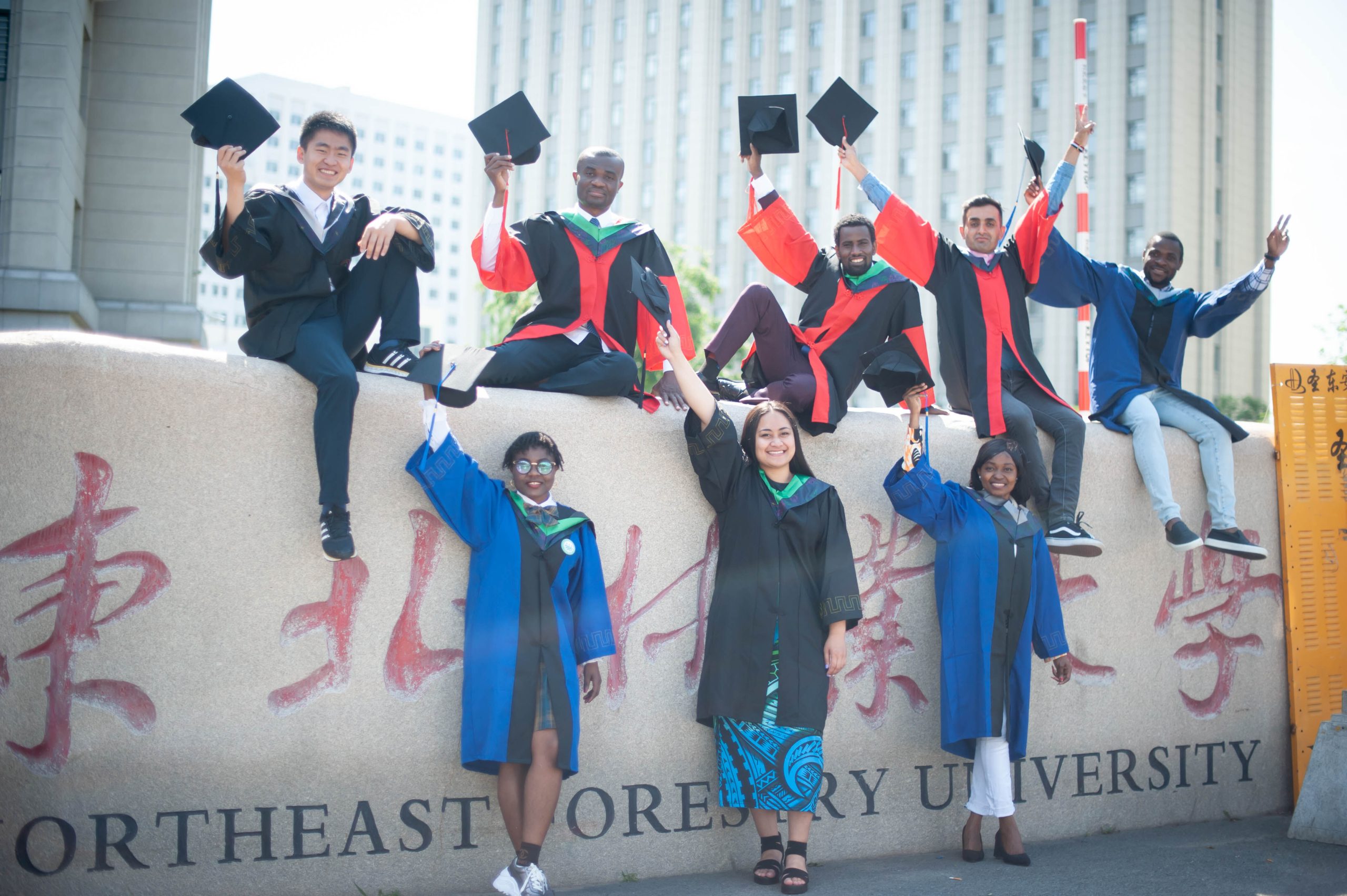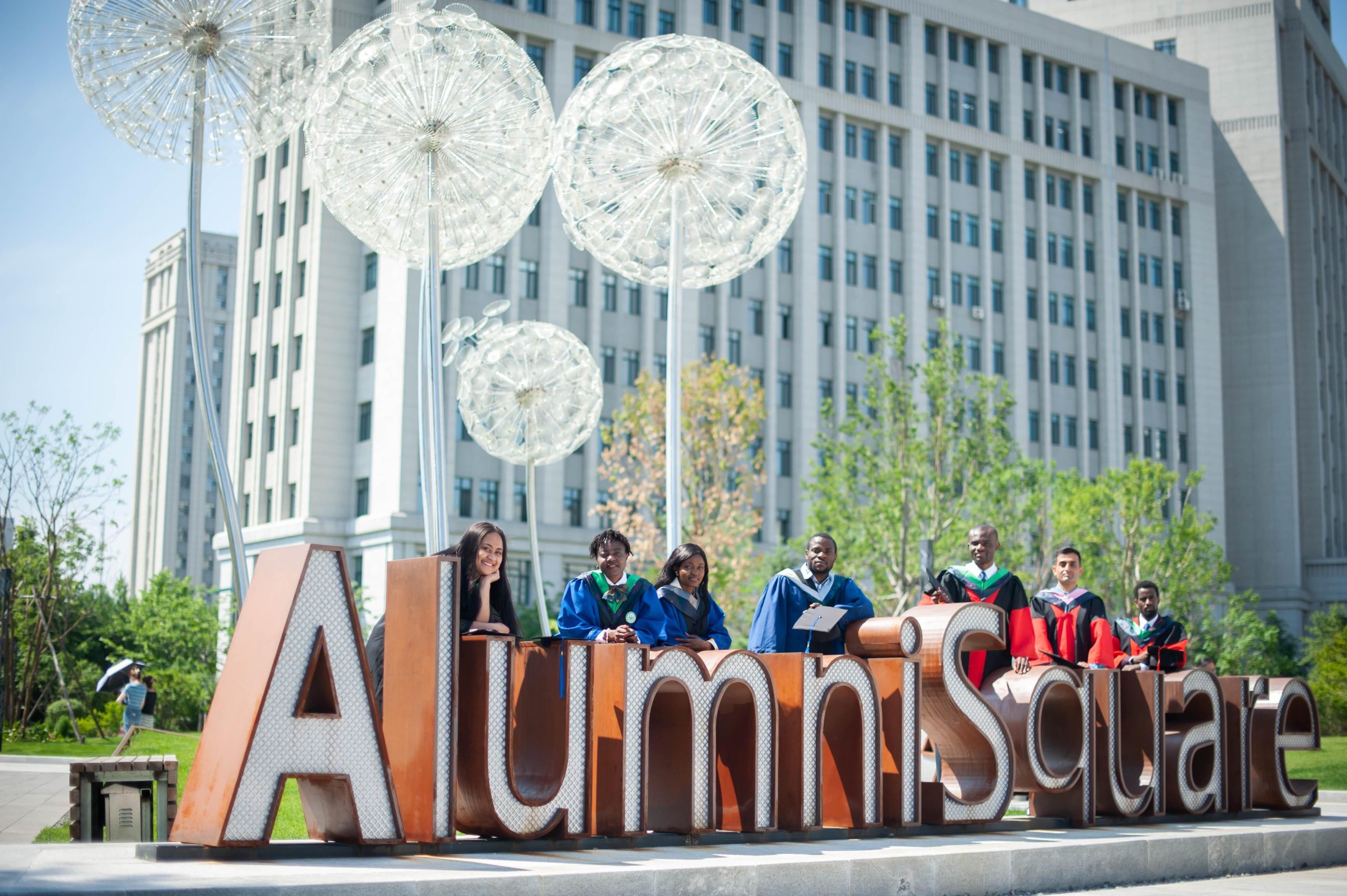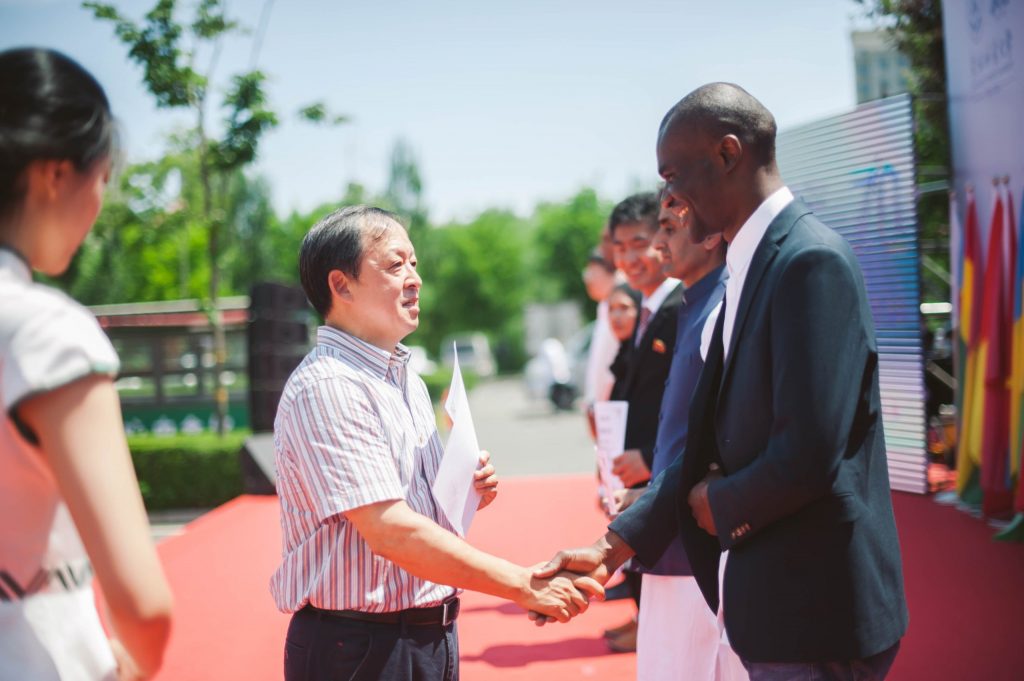
“Thanks to the ‘Belt and Road’ initiative, my hometown has built its first expressway, making travel more convenient for the people, and this inspired me to study in China.” Na Mengna (娜梦娜), a master’s student at the International Exchange College of Northeast Forestry University, comes from Mongolia. She mentioned that after her graduation, she plans to return to her home country and contribute like a seed, working for the betterment of her hometown under the opportunities provided by the ‘Belt and Road’ initiative, and contributing to the cultural exchange between the two nations.
Over the past 10 years since the introduction of the ‘Belt and Road’ initiative, Northeast Forestry University has seized this strategic opportunity. They have signed cooperation agreements with over 60 universities and research institutions from 14 countries participating in the initiative. They have sent over 300 government-sponsored students to these countries and have educated 2285 students from these countries. By actively promoting open, extensive, and inclusive regional education and exchange, these students act as seeds, promoting cultural exchange and mutual learning among nations, thus embodying the rich meaning of a community with a shared future for humanity.

Building Platforms for Cultural Exchange between China and Other Countries
In 2013, Vietnamese student Chen Ru (陈儒) became the first Chinese government scholarship master’s student at the Information and Computer Engineering College of Northeast Forestry University after completing his bachelor’s degree. After earning his Ph.D., Chen Ru returned to Vietnam to establish an international education company dedicated to promoting Chinese language learning and sending Vietnamese students to China for further studies, contributing to the ‘Belt and Road’ initiative.
“On one hand, the ‘Belt and Road’ initiative showed me the prospects of this industry, and on the other hand, I wanted to fulfill my commitment to my teachers and truly become a cultural ambassador between China and Vietnam,” said Chen Ru. Over the past four years, his company has collaborated with two major international schools in Vietnam to develop high school Chinese language courses, including curriculum planning from grades one to twelve, creating Chinese teaching materials, and producing video learning materials. Currently, over 2000 Vietnamese students have passed the corresponding levels of the Chinese language proficiency exams. Chen Ru also encourages outstanding Vietnamese students to apply to Chinese universities for degree programs, especially his alma mater, Northeast Forestry University, as the place where he can confidently entrust his students.
During the pandemic, Chen Ru’s company faced challenges in terms of teacher resources and student enrollment, but he persevered. He stated that his love for Chinese language education, along with the support provided by the ‘Belt and Road’ initiative, kept him going. “Chinese universities have formulated policies for recruiting and educating talents from countries participating in the ‘Belt and Road’ initiative, providing high-quality study opportunities for Vietnamese students and establishing many platforms for academic and cultural exchange between Chinese and Vietnamese youth.”
Chen Ru’s experience in studying and entrepreneurship has deeply influenced him. He sees himself as a witness, participant, and beneficiary of the ‘Belt and Road’ initiative. The results brought about by the initiative in various aspects have made him realize the importance of connection, that the destiny of humanity is interconnected, just as his teachers at his alma mater have instilled in him. He is also willing to be a seed, using his abilities to strengthen the ties between China and Vietnam and write new stories of cooperation and development.

Supporting Global Biodiversity Conservation
Zhou Ka (周卡), a 2020 doctoral graduate of the College of Wildlife and Nature Conservation at Northeast Forestry University, is from Ethiopia and is currently the Chief Executive Officer of the Wildlife Research and Development Department of the Ethiopian Wildlife Conservation Authority (EWCA).
During his studies in China, Zhou Ka conducted African swine fever monitoring and early warning in border areas with his advisor, conducted surveys on diseases in exotic species at seven zoos in East China, analyzed the systematics and evolutionary selection pressure of the Chinese bird Mx gene, investigated the origin of amphibian fungi in China, and made the first diagnosis of a new infectious disease in black bears caused by a marine virus on a global scale.
“China has a long-standing cultural tradition of environmental protection, especially in recent decades, the ecological environment has been improving, which is the most profound experience I had during my studies in China,” Zhou Ka said.
Now, Zhou Ka’s daily work mainly involves coordinating more than 50 wildlife experts and ecosystem researchers from various departments, working for the continuous protection of wildlife and nature conservation areas in Africa. He emphasizes that the academic achievements and practical experiences he gained during his time in China are playing a crucial role in his current work. These experiences provide him with a solid foundation and capital for supervising and guiding wildlife conservation efforts.
Recently, the Ministry of Innovation and Science of Ethiopia, the Ethiopian Wildlife Conservation Authority, Northeast Forestry University, and Addis Ababa University jointly signed a memorandum of understanding aimed at establishing the “Sino-Ethiopian Wildlife Disease Research Joint Laboratory.” This has given Zhou Ka a clearer direction and goal: to establish this international research platform, enabling the participation of both China and Ethiopia and even other countries participating in the ‘Belt and Road’ initiative in stable scientific cooperation to support biodiversity conservation efforts in both nations and globally.
Zhou Ka is using his education to drive the development of wildlife conservation in his hometown, and Annie, an Egyptian student, is doing the same by using her education to promote plant conservation in her home country.
“I want to do something to realize my ‘Egyptian dream’,” said Annie, a doctoral student at the Key Laboratory of Forest Plant Ecology of Northeast Forestry University. After graduation, she became an assistant professor in the Department of Botany and Microbiology at the Egyptian Academy of Scientific Research and Technology, actively promoting local plant conservation efforts.

Telling the Chinese Story through Practical Activities
The shortest duration for international students at Northeast Forestry University is three years, and the longest is seven years. Over time, they have gradually integrated into the local lifestyle, adapting to language, dietary habits, entertainment, and leisure activities.
Dasha (达莎), a Russian girl with short reddish-brown hair, fair skin, and fluent Chinese, has been living in Harbin for ten years. She is now a third-year graduate student at the College of Wildlife and Nature Conservation at Northeast Forestry University. Dasha’s life and habits have undergone significant changes, as she has developed a liking for Chinese dishes like “guo bao rou,” mooncakes with jujube paste filling, and pork and corn-filled buns. She also enjoys celebrating Chinese traditional festivals like the Dragon Boat Festival and the Spring Festival and likes wearing traditional Chinese clothing while visiting scenic spots with her friends. “Chinese traditional culture has become part of my daily life, and I now use Chinese more frequently than Russian every day,” said Dasha.
“When recalling my unforgettable study life, I remember my son, Caiyou, who had already mastered basic Chinese expressions at that time. During my graduation ceremony and my wife’s, Caiyou confidently spoke fluent, standard Chinese, which earned him applause from the audience,” Zhou Ka said.
Activities like the International Cultural Festival, Peking opera appreciation, and tea ceremonies held at Northeast Forestry University are still vivid memories for Zhou Ka. He has maintained the habit of drinking tea. He mentioned that the depth and inclusiveness of Chinese culture have deeply influenced him. Everything he learned and experienced in China has allowed him to appreciate the unique beauty of the East, feel the ancient and ever-renewing pulse of this ancient nation, and understand the enduring power of its civilization.

At the opening ceremony of the 8th International Cultural Festival at Northeast Forestry University, the Ambassador of the Republic of Yemen in China, Mr. Metami, issued a letter of appreciation, expressing recognition of the university’s efforts in hosting international students and conveying sincere wishes for Sino-Yemeni friendship. Yemeni international student, Kaka, also presented a symbolic gift of a “curved sword” representing courage and friendship.
Inclusiveness, mutual learning, and enduring friendships have been the hallmarks of the past ten years. The international students nurtured by Northeast Forestry University have been like seeds, scattered across the globe under the guiding influence of the ‘Belt and Road’ initiative. Slowly, they have taken root, blossomed, and contributed to the beautiful story of “gathering at Northeast Forestry University and shining in the world.”





